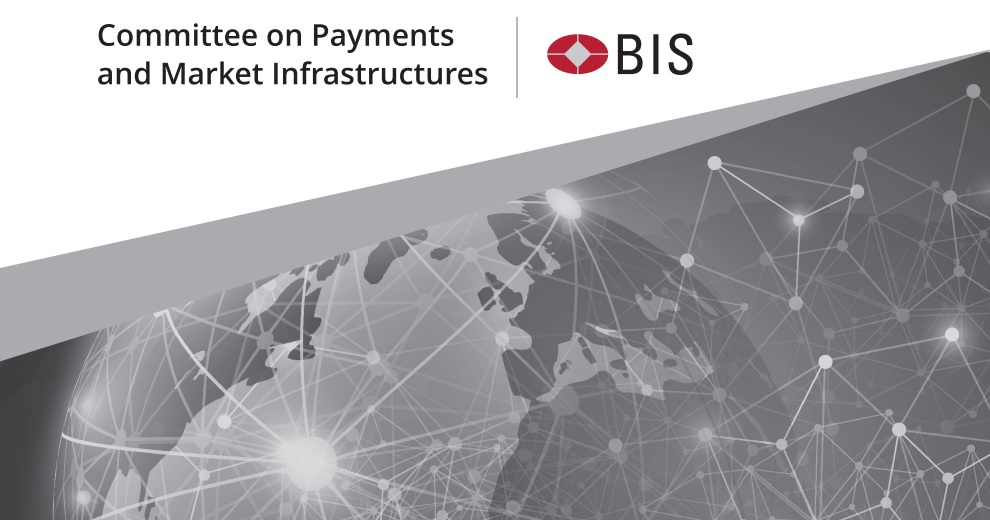
Key themes are: risk management of financial market infrastructures; enhancement of cross-border payments; and digital innovation in payments, clearing and settlement.
The work programme of the Bank for International Settlements’ Committee on Payments and Market Infrastructures (CPMI) outlines the strategic priorities for its policy, standard-setting, implementation and analytical activities. The programme is developed under the direction of the Committee Chair and endorsed by the Economic Consultative Committee.
„With its work programme, the CPMI continues to promote the safety and efficiency of payments and financial market infrastructures, advancing standard-setting work on relevant risk management. It will play a leading role in addressing obstacles to faster, cheaper, more transparent, and inclusive cross-border payments, as well as contributing to policy-oriented thought leadership in digital innovations in payments.” said Fabio Panetta, Governor of the Bank of Italy and CPMI Chair.
The key themes of the CPMI’s 2024–25 work programme comprise the following:
Risk Management of Financial markets infrastructures (FMIs)
Risk management of FMIs, such as payment systems, securities settlement systems and central counterparties (CCPs), is the foundation of the CPMI’s work. This includes fostering and monitoring the implementation of CPMI and International Organization of Securities Commissions (IOSCO) standards, the Principles for financial market infrastructures (PFMI). This work relies on layered coordination encompassing joint work with IOSCO, other standard-setting bodies and the Financial Stability Board (FSB).
The CPMI’s main priorities in this area are the continuation of the work on FMIs’ resilience and recovery including FMIs’ practices for non-default losses (NDLs); CCP margining practices in centrally cleared markets; and foreign exchange (FX) settlement risk reduction. In view of evolving threats and possible impacts of new technology, cyber and operational resilience is an important additional key focus. Hence, a newly established CPMI-IOSCO group works on cyber and operational resilience of FMIs, including the management of risks associated with third-party service providers and outsourcing. Finally, the CPMI explores emerging issues in FMI risk management, such as climate-related risks for FMIs and the impact of shorter settlement cycles.
Enhacement of cross-border payments
Enhancing cross-border payments has been a priority on the G20 agenda since 2020. The CPMI and the FSB developed a Roadmap to address the challenges that affect cross-border payments, with the goal of improving the speed, transparency and access to cross-border payments, while reducing their costs and maintaining their safety. In 2022, a strategic review focused on how to meet the 2027 targets set by the G20. The result of this review was a prioritisation plan and engagement model for taking the programme forward. The prioritised Roadmap focuses the work on three themes: (i) payment system interoperability and extension; (ii) legal, regulatory and supervisory frameworks; and (iii) cross-border data exchange and message standards.
Key priorities for the CPMI are developing governance and oversight considerations relevant to the interlinking of fast payment systems (FPS) and recommendations for technical standards (such as ISO 20022 and application programming interface (APIs)) that can help enhance cross-border payments. The CPMI will deliver a framework for the governance and oversight of FPS interlinking to the G20, organise two conferences together with the G20 and G7 Presidencies on FPS interlinking, and develop recommendations for areas of greater harmonisation of API protocols. The CPMI brings together central banks from across the world as well as private sector actors to (i) foster the interlinking of FPS; (ii) improve access to payment systems; (iii) extend payment system operating hours; (iv) adopt harmonised ISO 20022 data requirements; and (v) promote harmonisation of APIs. Finally, the CPMI monitors infrastructure changes planned or implemented, to identify areas that require greater attention to foster further progress.
Digital innovation in payments, clearing & settlement
The Committee monitors, identifies and assesses issues related to digital innovation in payments, clearing and settlement. Over the near term, the focus areas include tokenisation and cross-border central bank digital currencies (CBDCs).
On tokenisation, the CPMI works on the future of payments in a tokenised financial ecosystem and, together with the BIS, will deliver a report to the G20 on tokenisation in the context of money and payments. On CBDCs, the CPMI analyses the ideal timing of key technical and policy choices regarding cross-border CBDC functionality and on how central banks can effectively collaborate on this functionality. Finally, the CPMI, together with IOSCO, analyses risks associated with multicurrency and asset-linked stablecoin arrangements and, if needed, develops relevant policy considerations.
Banking 4.0 – „how was the experience for you”
„To be honest I think that Sinaia, your conference, is much better then Davos.”
Many more interesting quotes in the video below: